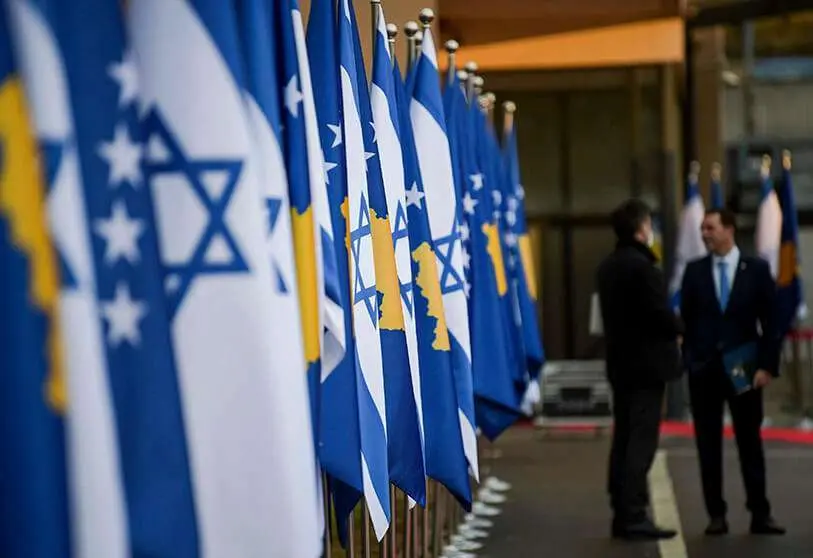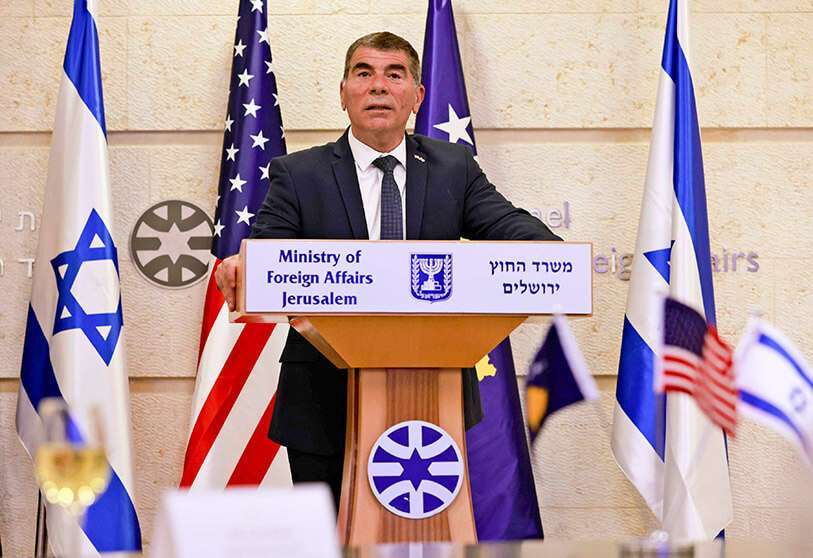Kosovo officially opens its embassy in Jerusalem

Kosovo has officially opened an embassy in the disputed city of Jerusalem recognising it de facto as Israel's capital, Kosovo's foreign ministry said on Sunday. The move followed the establishment of diplomatic relations with Israel on February 1 and a Kosovo-Serbia summit held at the White House in September, a statement said on Sunday. The mission was inaugurated at a brief ceremony in which the Kosovo flag was raised in front of the embassy building and a plaque with the text, written in Albanian, Hebrew and English, "Republic of Kosovo" was placed at its entrance, the ministry said in a press release. In exchange for Israel's recognition of its independence, Kosovo became the first Muslim-majority country to recognise Jerusalem as the capital of the Hebrew state. Most of the international community does not recognise Israel's annexation of East Jerusalem and says competing claims to the city should be resolved through negotiations. Most international embassies are located in Tel Aviv.
As part of an exchange of mutual recognition, Israel officially recognised Kosovo, a former Serbian province that proclaimed independence in 2008, as an independent state, joining most Western countries but not Serbia, China and Russia. The Israel-Kosovo deal was discussed last September in Washington by then US president Donald Trump in the context of economic talks with Serbia and neighbouring Kosovar. Kosovo and Israel established diplomatic relations in February much to the chagrin of Belgrade, which does not recognise the independence of its former province. Kosovo's decision was made when former prime minister Avdullah Hoti met Serbian President Aleksandar Vucic at the White House last September with then-President Donald Trump. "The placement of the plaques and the state flag at the Kosovo Embassy in Israel reflects the commitment of the Kosovo government to fulfil the commitment to establish the diplomatic mission in Jerusalem," he said.

Pristina's decision generated criticism, not only within Muslim-majority countries such as Turkey, which denounced it as a violation of UN resolutions and international law, but also within the European Union. The issue of Jerusalem and its status remains one of the thorniest points in the Israeli-Palestinian conflict. The Palestinian Authority believes that East Jerusalem was illegally occupied by Israeli forces in 1967 and calls for East Jerusalem to be the capital of the Palestinian state.
"This decision is diverging Kosovo from the EU position on Jerusalem," said EU spokesman Peter Stano, noting that all EU countries' embassies in Israel, as well as the EU delegation, are located in Tel Aviv, according to relevant UN resolutions, Security Council and European Council decisions. A Kosovar journalist asked during this press conference what the consequences could be for Pristina and what gave the EU the right to ask Kosovo to join the ranks while it is not recognised by five EU countries and therefore cannot become an EU candidate or obtain visa liberalisation. Greece, Cyprus, Romania, Slovakia and Spain do not recognise the former Yugoslav province as an independent country. More than two decades old, unresolvable since the last of the wars that tore the former Yugoslavia apart (1998-99), the conflict between Serbia and Kosovo remains a threat to stability in Europe. Normalisation agreements concluded in 2013 under EU auspices have been largely unheeded. The Kosovo war (1998-1999) claimed more than 13,000 lives, most of whom were Albanians. It ended when a Western bombing campaign forced Serb forces to withdraw from the territory.
Kosovar Prime Minister Albin Kurti has found himself in a difficult diplomatic position before taking office after pressure from Turkey, a close ally of the new Western Balkan country, to change its mind on the Jerusalem location. Turkish President Recep Tayyip Erdogan warned Kosovo that the move could damage future relations with his country. The mainly Muslim Balkan country is the third in the world to establish its embassy in Jerusalem, after the United States and Guatemala.









